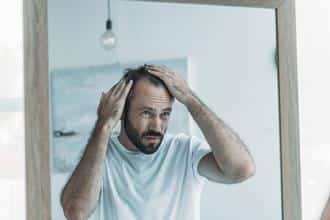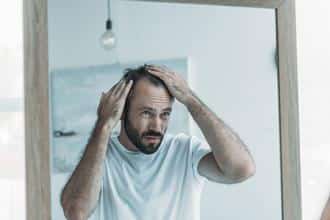posted: Jun. 08, 2021.

It can be incredibly distressing when you start to lose your hair unexpectedly. Alopecia is something that affects both men and women and this autoimmune disorder causes patches of hair to fall out. This condition is most often found in women under 30.
Alopecia Can Be Hereditary
If you develop alopecia you may want to point a finger at your genetics. In fact, both parents have the ability to pass down alopecia to their children. So, if you have a family member with alopecia areata then you may be more likely to develop this condition at some point during your lifetime. Of course, genetics isn’t the only factor that plays a role in whether or not you develop alopecia. There are other deciding factors, as well.
Alopecia Targets the Hair Follicles
As we mentioned above, alopecia areata is an autoimmune disorder, which means that the body attacks the hair follicles, causing them to slow or even halt hair growth. There are different kinds of alopecia and people experience different symptom severities. Some people may notice hair regrowth in a few months while others may not. Again, you must have a dermatologist that you can turn to for answers.
There are Solutions for Managing Alopecia
While there is no cure, there are treatment options out there that can help stimulate hair growth and reduce the immune system response. The type and severity of your alopecia, along with your age and the severity of your hair loss will play major roles in what types of treatment options are best for you. This is something that a skincare professional can discuss with you during your consultation.
For those with milder symptoms, there are injectable and topical medications that could help. Common treatments include,
- Topical or injectable corticosteroids
- Minoxidil solution (applied to the scalp to regrow hair)
- Anthralin cream
Those with more severe symptoms may respond better to these treatment options,
- Oral steroids
- Immunomodulatory medications
- Topical immunotherapy
If you are dealing with sudden hair loss, it’s important to talk with a dermatologist to find out what’s going on, so you know the best way to treat it. Alopecia can be distressing, but your dermatologist can provide you with options to improve hair regrowth and to once again boost your confidence in your appearance.


